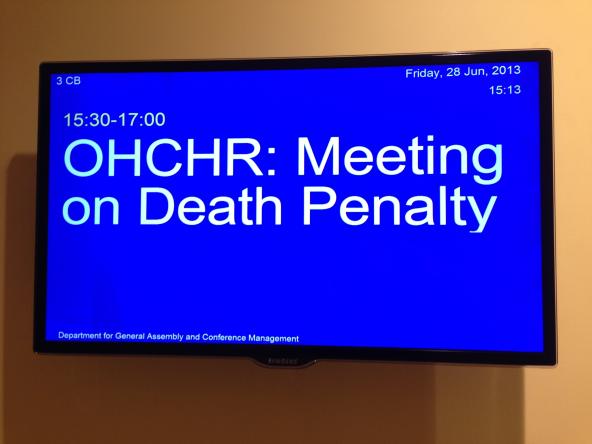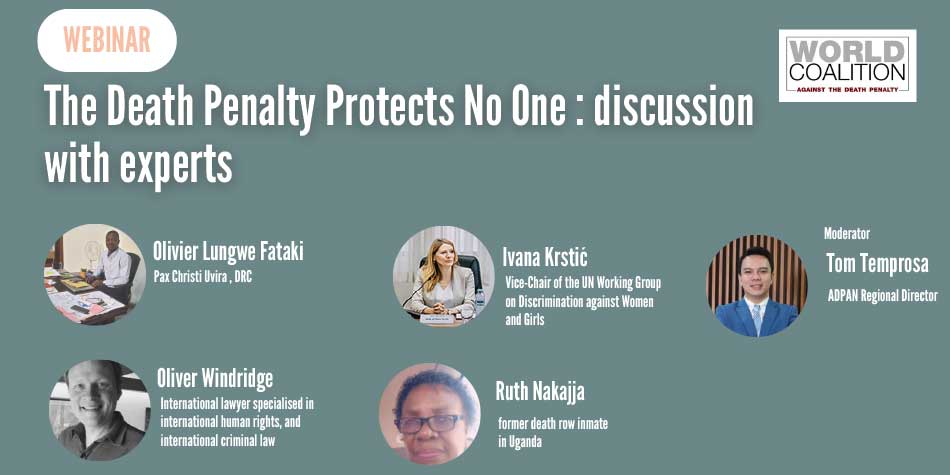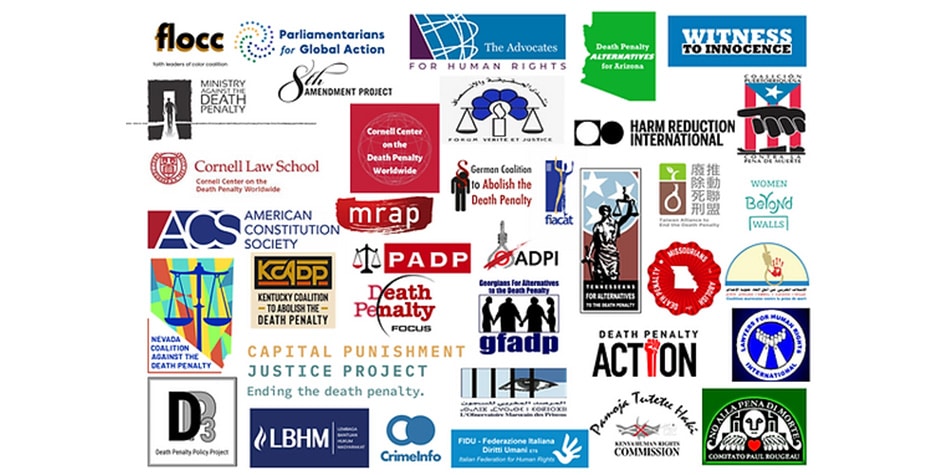
United Nations panel hears from innocent sentenced to death
International standards
The United Nations Office of the High Commissioner for Human Rights office organized on the second of a series of panel discussions on the death penalty on 28 June 2013. The event title was “Moving away from the death penalty – Wrongful Convictions”.
UN Secretary General Ban Ki-Moon opened the event with the affirmation that “the taking of life in the name of justice is too absolute and irreversible”. He also anticipated that his next report on the question of the death penalty would focus on the secrecy surrounding capital punishment in some retentionist states.
UN Assistant Secretary General for Human Rights Ivan Šimonovic moderated the discussion, which focused in particular on the case of the West Memphis Three. One of the panelists was Damien Echols, who was sentenced to three capital charges of murder and freed after 18 years on death row. Although his innocence was proven, he had to plead guilty to a crime he did not commit to obtain a lighter sentence.
Echols said: “I was sentenced to death not once, not twice but three times and the judge read these three death sentences in a monotone voice like it was just another day at the office, while for me it was like being punched in the head three times.”
He also described the tortures he suffered in prison, denouncing a system that does not work and that is not up to the standards expected of those states that still retain the death penalty.
Prof Brandon L. Garrett, author of Convicting the Innocent: Where the Criminal Prosecutions Go Wrong, also addressed judicial flaws in the US.
Wrongful convictions in Asia, the Caribbean and Africa
Saul Lehrfreund presented wrongful convictions and failures of the judicial system in Asia, the Caribbean and Africa. The co-executive director of the Death Penalty Project, a World Coalition member organization, stressed the difficulties faced by lawyers in countries such as Malawi or some Caribbean states.
He said that even if the judicial systems of retentionist countries could be perfected in an ideal world, the death penalty would remain a form of torture that should be abolished.
The Secretary General’s presence was an answer to calls to generate discussion on the death penalty at the UN by High Commissioner for Human Rights Navi Pillay. She has stated her opposition to the death penalty in all cases, citing “the fundamental nature of the right to life; the unacceptable risk of executing innocent people by mistake; the absence of proof that the death penalty serves as a deterrent; and… the inappropriately vengeful character of the sentence.”
The panel followed a 2012 debate on the death penalty that focused on lessons from national experiences. Speakers at the first event had included Kirk Bloodsworth of Witness to Innocence and Maiko Tagusari of the Center for Prisoners Rights, both World Coalition member organisations.
The discussion will continue in the lead up to the 2014 report of the Secretary General to the UN General Assembly on the application of resolution calling for a moratorium on the use of the death penalty, and to a possible fifth resolution on the issue.
The Office of the High Commissioner for Human Rights will conclude this series of panel discussions on Moving away from the death penalty by addressing two other major issues in the capital punishment debate: deterrence and discrimination.







